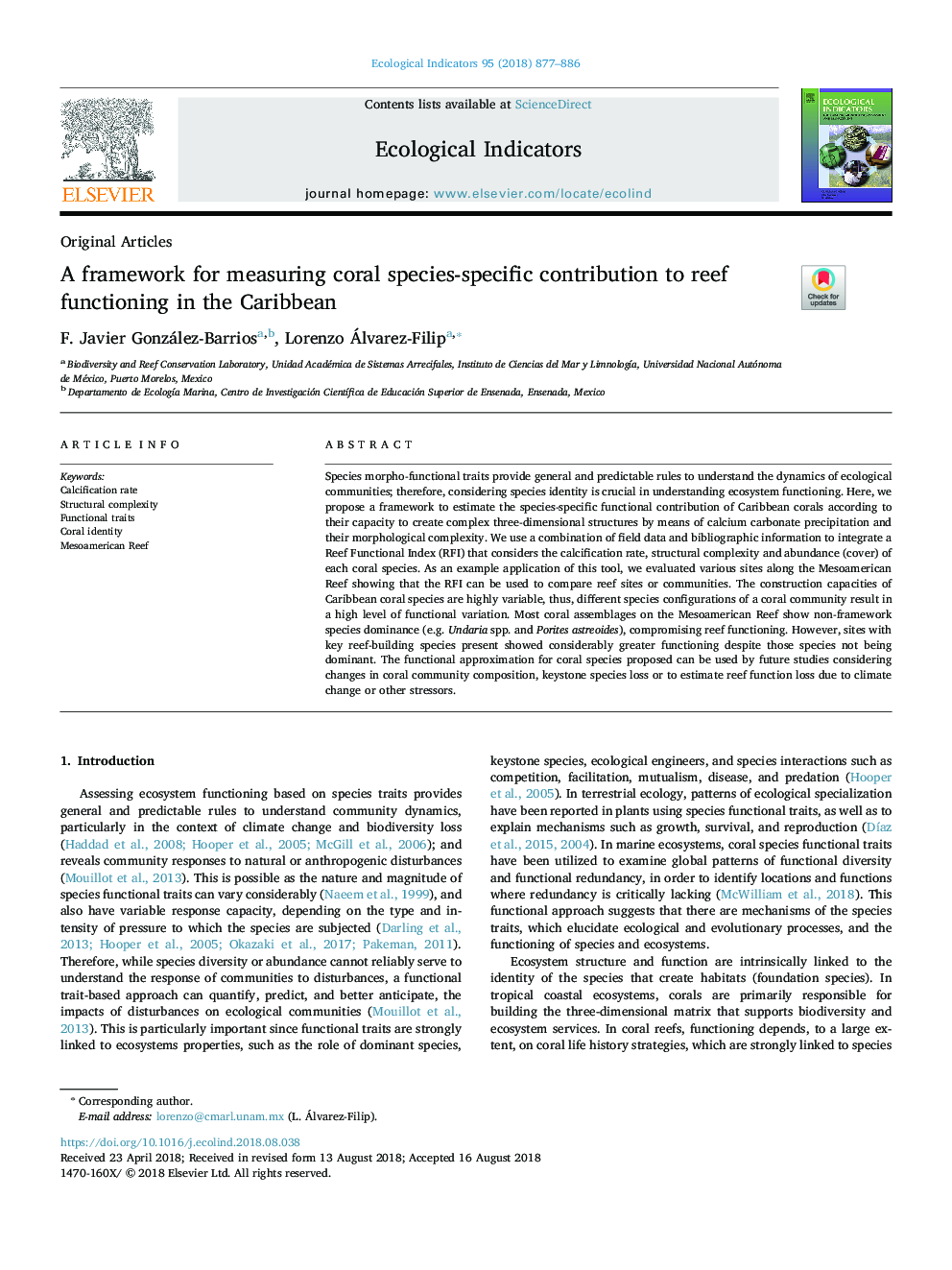| Article ID | Journal | Published Year | Pages | File Type |
|---|---|---|---|---|
| 8845063 | Ecological Indicators | 2018 | 10 Pages |
Abstract
Species morpho-functional traits provide general and predictable rules to understand the dynamics of ecological communities; therefore, considering species identity is crucial in understanding ecosystem functioning. Here, we propose a framework to estimate the species-specific functional contribution of Caribbean corals according to their capacity to create complex three-dimensional structures by means of calcium carbonate precipitation and their morphological complexity. We use a combination of field data and bibliographic information to integrate a Reef Functional Index (RFI) that considers the calcification rate, structural complexity and abundance (cover) of each coral species. As an example application of this tool, we evaluated various sites along the Mesoamerican Reef showing that the RFI can be used to compare reef sites or communities. The construction capacities of Caribbean coral species are highly variable, thus, different species configurations of a coral community result in a high level of functional variation. Most coral assemblages on the Mesoamerican Reef show non-framework species dominance (e.g. Undaria spp. and Porites astreoides), compromising reef functioning. However, sites with key reef-building species present showed considerably greater functioning despite those species not being dominant. The functional approximation for coral species proposed can be used by future studies considering changes in coral community composition, keystone species loss or to estimate reef function loss due to climate change or other stressors.
Related Topics
Life Sciences
Agricultural and Biological Sciences
Ecology, Evolution, Behavior and Systematics
Authors
F. Javier González-Barrios, Lorenzo Álvarez-Filip,
